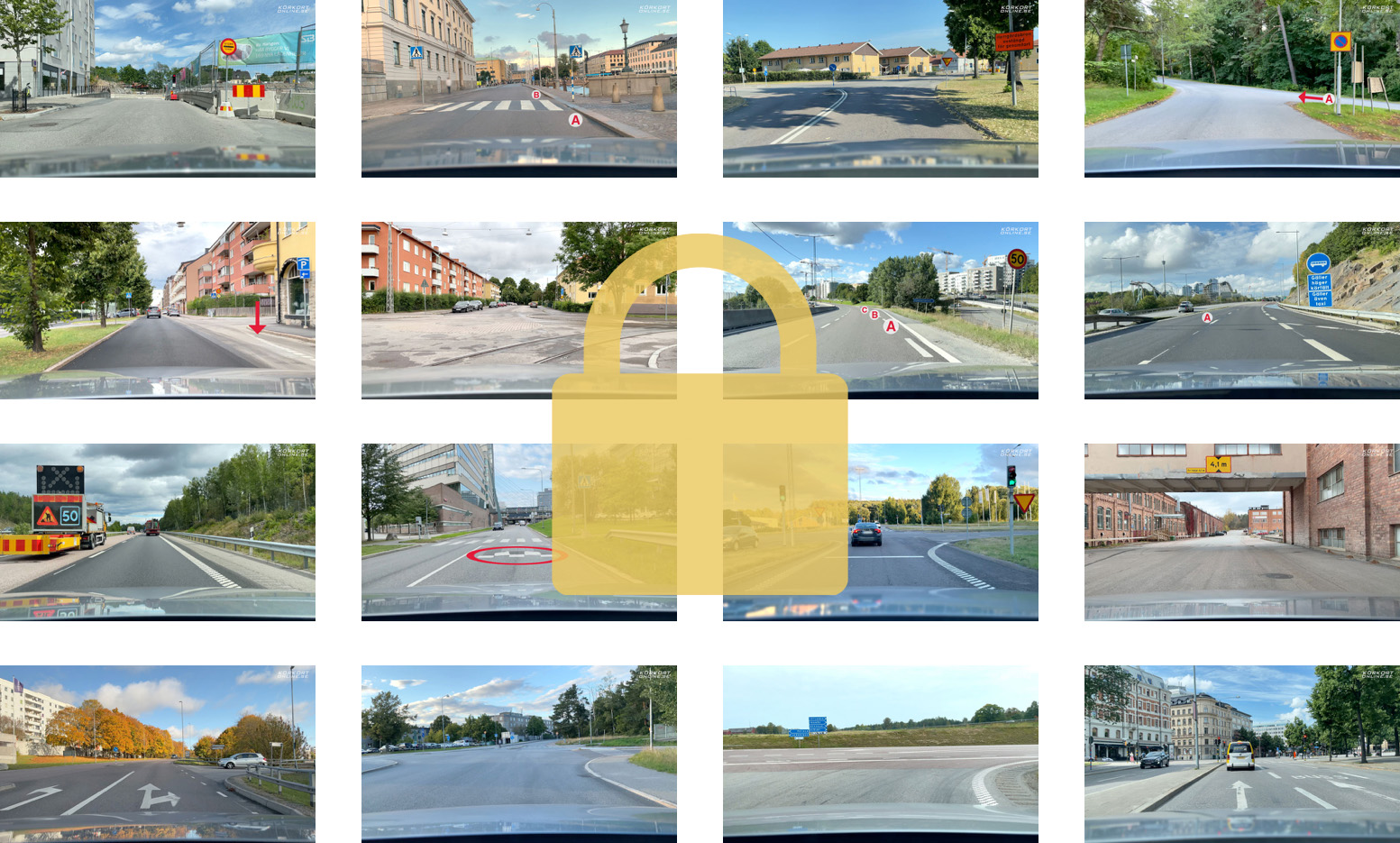Driving theory questions
This is an old question that is no longer in use.
Images may be missing and the information may be dated.
You are travelling at 30 km/h. How long will the braking distance be, if it is 41 metres at 60 km/h?
“The braking distance [...] increases quadratically with increasing speed.” (Driving Licence Book, 19th Edition, page 120)
| Colour codes for the figures (easier to keep track of them) | |
| Current speed | 30 km/h |
| Comparative speed | 60 km/h |
| Comparative braking distance | 41 metres |
| Reduction in speed (to be calculated) | X times |
| Reduction in braking distance (to be calculated) | X times |
The answer is arrived at in several steps. The first question to ask yourself is whether the speed is increasing or decreasing. It is decreasing (from 60 to 30). But what we need to know is by how much it decreases:
- 60 / 30 = decreases by 2 times
The next step is to find out how much shorter the braking distance will be:
- 22 = 4 times shorter (22 is the same as 2 * 2)
To the power of 2 as the braking distance increases quadratically with the speed. The term “quadratically” corresponds to the meaning of “to the power of 2”.
We now know that the braking distance is 4 times shorter. In order to arrive at the distance in metres (as the question is asking for), the following calculation is used:
- 41 / 4 = approximately 10 metres.
Note that the road is probably very slippery, as 10 metres at 30 km/h is a fairly long braking distance.
Körkortonline.se offers driving licence theory tests. This is an example of an explanation of a test question. English theory test (free demo), Swedish theory test (free demo).
More examples of explanations:
- You are driving a heavy cargo for a friend. Before you reach their house, you see this sign. What rule applies?
- Is it possible for an additional extension panel to depict a single arrow pointing upwards?
- You arrive at this situation. What should your reasoning be?
- The grey car is turning left. Is the driver obligated to use their indicator?
- How much better, in terms of traffic safety, is it to use a handsfree rather than holding your mobile in one hand?
- You are driving on to a motorway. What rule applies?
- Which statement is true regarding accidents caused by tiredness late at night?
- Study the picture. Which of the following is true?
- Which statement is true regarding brake fluid?
- You are driving at 90 km/h. How many metres does the car travel in 4 seconds?
- How many metres per second (m/s) is 110 kilometres per hour (km/h)?
- How many kilometres per hour (km/h) is 14 metres per second (m/s)?
- Which statement is true regarding pedestrians and pedestrian crossings?
- You are driving the vehicle from which the pictures are taken. In which situation or situations are you obligated to give way to traffic coming from the right?
- You are driving the vehicle from which the pictures are taken. In which situations do you have to give way to all intersecting cars?
- Which statement is true in regard to the lined area to the right of the photo?
- You are driving at a crawling speed. How should you act in the situation in the picture?
- What is the significance of the white part of the red circles?
- The taxable weight is not visible. Is there an assumption that you can make anyway?
- What is a rear-end collision?
Category:
- Driving theory questions: Vehicle
- Driving theory questions: Environment
- Driving theory questions: Traffic safety
- Driving theory questions: Traffic regulations
- Driving theory questions: Individual circumstances
- Driving theory questions: Road signs





